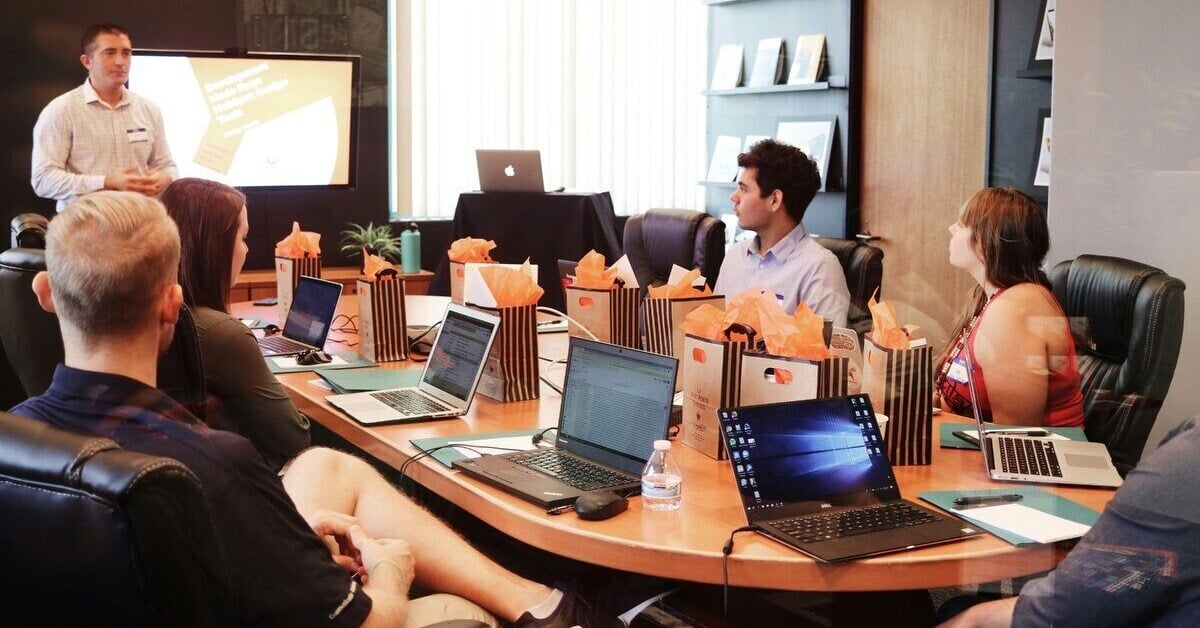The difference between employee skills and knowledge

How to unlock your organization’s competitive advantage
Employees forget about 70% of what they learn within 24 hours and almost 90% within a month. This creates a huge problem when trying to upskill and reskill employees.

The forgetting curve (courtesy of Learning Guild)
Many traditional corporate training methods are usually lecture-based, with a focus on transferring knowledge to the learner. Even digital courses and onboarding materials follow this approach. While the employee comprehends the training, they likely don't pay close attention, because the information flow is one-way. The learner doesn’t get the chance to practice and apply what they learned.
So, how do organizations minimize the gap between what employees know and what they can actually do? The answer lies in knowing the difference between knowledge and skills.
Knowledge vs. skills
These terms often blend together, but they mean very different things. Knowledge refers to your understanding and grasp of a topic. Skills represent the capability to apply knowledge into practice. By developing skills instead of knowledge alone, you'll create meaningful change in your organization. It results in a higher ROLI (return on learning investment).
Traditional learning methods often heavily focus on knowledge retention - which is unrealistic given the fact employees forget up to 90% of material anyway. Let’s explore three examples that compare knowledge vs skills.
Example 1: Compliance
Take, for instance, a company offering compliance training. Employees may remember the rules and regulations after a course. However, without the prospect of application in real life, they won't learn new skills. Compliance doesn't rely on knowledge about the rules themselves. It relies on the employee's ability to develop compliance-related skills.
Skills are the hands-on talents of employees, which they use in performing particular tasks at the workplace. They involve practical-oriented actions, which relate directly to performance. Knowledge, on the other hand, has to do with a wider, more general understanding of a subject area. This involves the basics underlying a role but not the capacity for its real-life application.
Example 2: Sales
A salesperson on your team may know a lot about sales. They have studied their courses, learned from peers, and even graduated with a degree in communication! You would think this means they are able to communicate with and close clients.
However, that’s not always the case. While knowledge provides a helpful background, it won't create behavioral change. It's the development and application of practical skills that propel employees to success. A salesperson who can handle objections, and has practiced doing so, will outperform one who has only read 10 books about sales. A person who has only read about the right way to do things has knowledge, but lacks true skill.
Example 3: Customer service
Consider a customer service team that often interacts with difficult callers. The team may have knowledge of company policies and procedures. The reps may even be experts in product knowledge! Without skills to resolve conflict though, or show empathy, that knowledge won't help the employee in the moment.
To be successful, these customer service employees must know how to translate skills to specific situations. Nowadays, technology and AI can make up for a lack of knowledge in many roles. Yet it can't replace well-developed skills – especially in the case of a role like customer service.
Immersive simulations for skill development
Simulation training is the new way to develop and upskill employees, while also benchmarking their skills and measuring skills data in your organization. Immersive simulations provide employees with realistic scenarios to practice skills. This is the first technology that is able to create organizational change.
Employees can go through an immersive simulation to benchmark their skills. It will determine where they stand in regards to that skillset.
Then, the team can take the simulation again in practice mode to develop. They can practice what they got wrong. Unlike a traditional quiz or training course, they are interacting with either a real-life avatar or an AI avatar on screen. This creates realistic learner journeys, and adaptive pathways.
Companies can script their simulations in a thousand different ways. This helps them develop unique skills for their organization, creating a workforce like nobody else in their industry.
The competitive advantage
Imagine a team with thousands of employees who all have measured, trackable skills. Managers know exactly which skills people are best at, and where to spend their time.
With enough practice, these skills eventually become second nature, driving real performance improvement. This is the competitive advantage of a company that focuses closely on skills development vs. general knowledge.
Skills over knowledge: The takeaway
Companies focus too much on low-impact training. Instead, cutting-edge organizations should use scenario-based learning to develop and measure skills.
This skills data becomes their greatest asset, and their competitive advantage. By doing this, you can empower your employees with the ability to remain strong members of the organization.
It's ultimately skills — not knowledge — that drives true organizational improvement.

